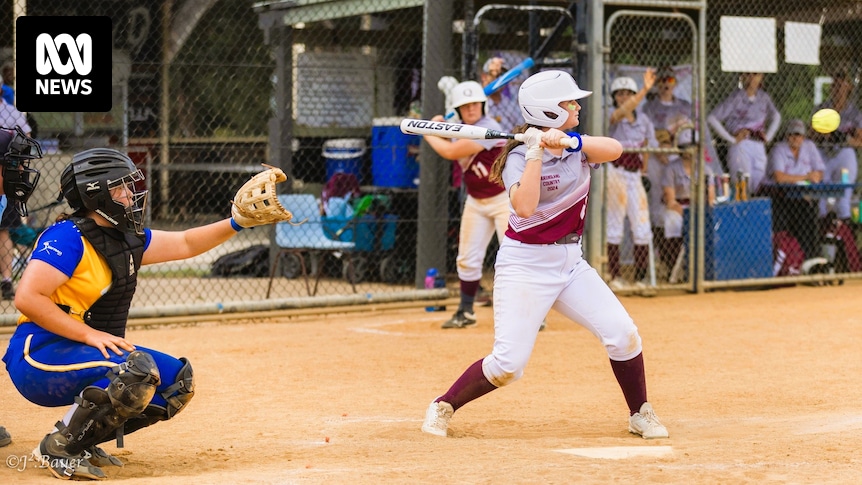As the cost of living crisis puts a strain on families, community sports clubs are on the brink of collapse, a leading sports organisation has revealed.
Patrick Walker, chief executive of the Australian Sports Foundation, said the tough economic conditions were “a major problem”.
“If a local football, cricket or netball club goes bust, it will have a disproportionate impact on the local community,” he said.
And, increasingly worryingly, the crisis could also have a significant impact on Australia’s talent pool in the run-up to the Brisbane 2032 Olympic and Paralympic Games.
Mr Walker said with community clubs affected in the medium to long term, the outlook could also be bleak for athletes at the highest level.
“This has implications for our talented group of athletes as they prepare for the Brisbane 2032 Olympic and Paralympic Games,” he said.
Patrick Walker of the Australian Sports Foundation says tough economic conditions are a major problem for families and sporting groups. (Provided by the Australian Sports Foundation )
A 2023 survey by the Australian Sports Foundation found rising costs were impacting participation and pushing many clubs towards insolvency.
The report also reveals that clubs are struggling to cope with operating costs and reduced volunteer numbers following COVID-19 and extreme weather events.
“One of the most shocking statistics to emerge from the report was that around 20% of all clubs surveyed had considered closing their doors due to financial circumstances and this figure was actually higher – 24% – among smaller community clubs,” he said.
The Australian Sports Foundation is the country’s not-for-profit sport fundraising organisation, dedicated to supporting a thriving national sporting sector.
The organization has been helping clubs, organizations and families for nearly 40 years.
Mr Walker said small community clubs were the lifeblood of rural and regional towns.
“Sport is a lifelong habit and it is really important that it is ingrained in our children’s lives from a young age. If that is not the case, it is very unlikely that they will take up sport at a later age,” he said.
“Obviously, if you don’t have the participation and the registrations, the clubs lose money, which means they are under financial pressure, so it’s a bit of a vicious circle.”
Casey McLoughlin with her athletic 11-year-old twins, Coby and Paige. (Provided by: Casey McLoughlin)
Sport is a way of life
For single mom Casey McLoughlin and her three sports-loving kids, sports are more than just a Saturday morning treat. They’re a way of life.
Every weekend, the family loads up the car in central Queensland and drives across the country for everything from softball to rugby league to athletics.
Ms McLoughlin said rising living costs were making the situation difficult.
“It’s a tough choice, but sometimes you have to stick with what you can afford,” she said.
Paige representing Queensland Country at the National Softball Championships in Canberra in January. (Provided by Softball Queensland)
But the Rockhampton mum is determined not to let that stop her children, Jackson Poustie, 15, and 11-year-old twins Paige and Coby, from being active.
“I grew up that way. My mum was a single mum as well, but I played netball, softball, so I really want to instill that in my kids,” Ms McLoughlin said.
“Right from the beginning, at age six, kids were playing something, whether it was soccer, football, softball, tee-ball… it’s really great for them.”
Over the past three months, Ms McLoughlin has travelled to Adelaide, Melbourne and Canberra to support her talented trio representing Queensland in softball.
Ms McLoughlin admitted she recently had to turn Coby, who is also a talented runner, away from the state track and field titles.
Sports are a way of life, especially softball, for talented athletic siblings Coby (left), Jackson and Paige Poustie. (Provided by: Casey McLoughlin)
“Everything is increasing and the number of trips is really a factor in mortality,” she said.
“There’s the cost of accommodation and obviously taxes and uniforms and everything else… but then there’s also the travel and the extra 30,000 kilometres you drive every year to get the kids to and from their places of residence.”
Aussie Rules is one of the fastest growing sports in Australia for girls. (Provided by: Glenmore Bulls)
Women and girls increase the numbers
Although these trends are worrying, there are some positive signs.
Increased participation by women has been seen in results from nearly 3,000 community sports clubs in the Australian Sports Foundation’s online survey.
Glenmore Bulls Australian Football Club, which competes in Queensland’s AFL Capricornia competition, is one club seeing a new wave of junior players emerge from its ranks.
Glenmore Bulls Australian Football Club chairman Sean Peckover says he has seen an increase in female participation in the sport. (Provided by: Glenmore Bulls)
“Aussie Rules is the fastest growing sport in Australia for girls and there is a defined pathway for girls,” Bulls chairman Sean Peckover said.
As part of a new initiative, Mr Peckover said the club was offering free registration to new players this season because of cost of living pressures on families.
“As a club we also encourage parents and players to contact us if they are having difficulty with tuition fees and we will help them,” Mr Peckover said.
“For parents, it’s really difficult, if you have an active child, to be able to split the finances between multiple sports. So we have to look at ways to innovate and help parents.”
Australian football club Glenmore Bulls is looking for innovative ways to help parents of young players coming through its ranks. (Provided by: Glenmore Bulls)
Loading…
If you are unable to load the form, click here.
